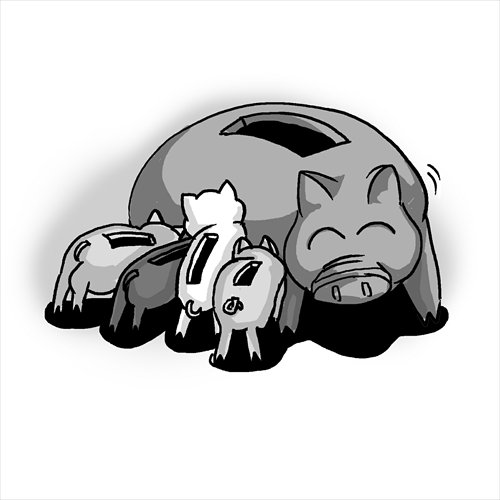HOME >> BUSINESS
Polish economic success rests on market reforms
By Louise Ho Source:Global Times Published: 2014-2-20 21:28:02

Illustration: Lu Ting/GT
Major economic liberalization reforms instituted in the early 1990s have helped Poland make incredible strides in the decades following the collapse of the Berlin Wall and its transformation into a democracy. These reforms have been widely credited for its successful shift from a state-planned economy to market-oriented as well as its eventual membership in the European Union (EU).
After the fall of the former Soviet Union, Poland has been one of the fastest growing economies in Eastern Europe thanks to, among other social and political breakthroughs, policies introduced in 1990 by then finance minister Leszek Balcerowicz. These measures included eliminating price controls, abolishing central allocation, privatizing small state-owned enterprises (SOEs) and allowing free convertibility of the zlot, the Polish currency.
Polish administrators at that time realized that to revitalize the economy, government interventions should be kept to a minimum. "When asked what would be the new economic and industrial policies for Poland after putting an end to the central economy, the minister for industry said, 'our policy is to have no policy,'" Polish Secretary of State Olgierd Dziekonski told the Global Times in an exclusive interview in Warsaw in late January.
In what is called "shock therapy" for Polish businesses, the government eliminated subsidies to industries with low productivity, forcing them to restructure. Some SOEs were privatized, and some small SOEs that were not needed for state functions saw ownership transferred to local governments, said Dziekonski.
This form of treatment led to some early difficulties. Many small companies went bankrupt, said Dziekonski, with interest rates surging to 70 percent at one point thanks to high inflation. "But after a year, inflation was under control and the economy started on the right track under the new rules," he told the Global Times.
Another important aspect of Poland's economic reforms was opening up to foreign trade and investment. Import taxes and limits were abolished, as new policies also opened Polish products to export, said Dziekonski.
Poland has achieved significant growth since becoming a member of the EU. Poland's GDP growth rate averaged roughly 4 percent from 2004 to 2013, despite Europe's financial woes during the latter years of this period. Today, Poland is the sixth largest economy in the EU. But it didn't get to its present position overnight.
Dziekonski noted that Poland had the chance to grow faster than its neighbors because of EU regulations, such as the open movement of people and money within the region; the absence of internal tariffs in the EU market; and technical harmonization in various fields among EU nations.
"This required significant changes by Polish companies, which were used to former Soviet standards, to conform to the new EU rules," Dziekonski noted.
Joining the EU has had an overwhelming positive impact on the Polish economy. The abolishment of visa restrictions means Polish nationals can travel freely throughout the bloc in search of job opportunities. Capital from the EU has also flowed into Polish businesses and infrastructure projects.
Still though, Dziekonski said farmers were particularly concerned when Poland first joined the EU, due to the union's stringent agricultural regulations. "Now farmers are the most supportive of joining the EU. They have land and benefit from the export of food products," he told the Global Times. In a referendum on the matter held in 2003, 77 percent of Poles agreed to join the EU, according to Dziekonski.
This year marks the 65th anniversary of diplomatic relations between China and Poland. Recent years have seen the two countries deepen their economic ties, especially since their signing of a strategic partnership agreement in 2011.
Now Bank of China and Industrial and Commercial Bank of China have opened branches in Poland. Several Chinese companies are also taking part in Poland's privatization push and local infrastructure projects. However, bilateral cooperation is "not as fast as it could go," Dziekonski noted.
During a meeting with Polish Prime Minister Donald Tusk in a summit between China and Central and Eastern European countries in Bucharest in November, Chinese Premier Li Keqiang said his country is willing to invest in Polish railway construction and is considering increasing imports of brand-name products from Poland.
There are benefits for both sides to increase cooperation, as China is striving to make its economy more market-oriented while at the same time Poland is trying to attract more foreign investment.
The resilience of the Polish people is evident from their ability to thrive during periods of historic change. The current administration, said Dziekonski, is being challenged to maintain economic growth, lower unemployment, defeat a budget deficit, bolster national competitiveness and promote innovation. From what the country has achieved over the past two decades, one can be confident that Poland will find ways to keep growing over the years ahead.
The author is an editor with the Global Times. bizopinion@globaltimes.com.cn
Posted in: Comments